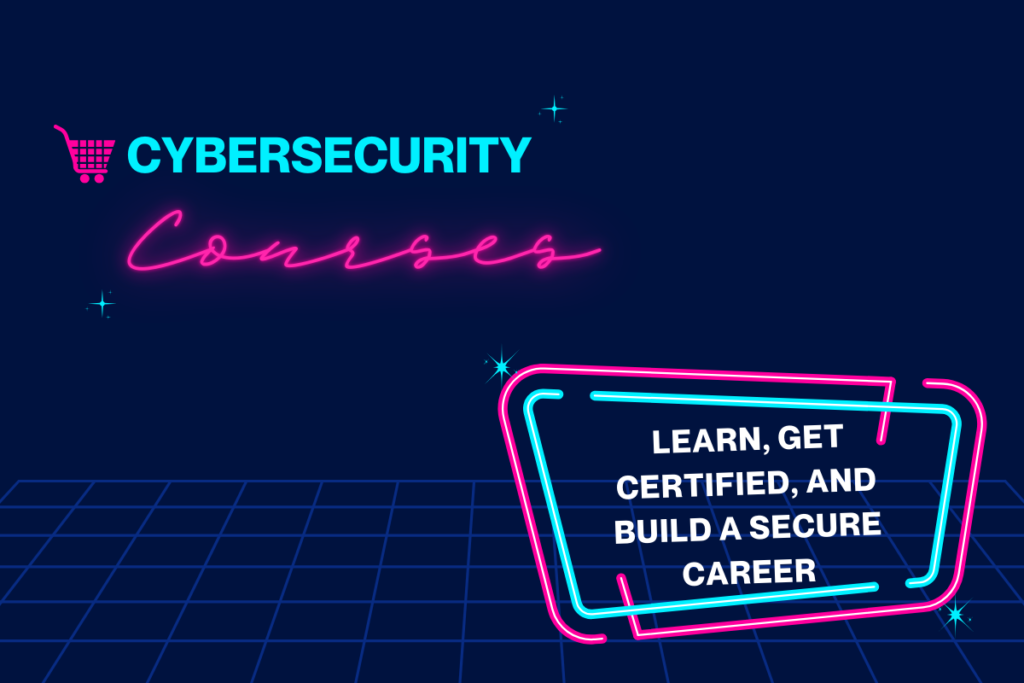With the rise of global cyber threats, cybersecurity courses are the bedrock laying the foundation for robust digital defenses. These programs prepare students who are in learning mode with highly relevant skills to address emerging threats, which, in turn, are an avenue to certifications and a lucrative career. Discover how these courses can change your career path.
Importance of Cybersecurity Courses in Current Digital World
The need for cybersecurity specialists has escalated, with over 3.5 million empty jobs globally. This gap is filled by cybersecurity courses in the following ways:
- Addressing Skill Gaps: Training experts in threat detection, encryption and ethical hacking
- Fulfilling Compliance Requirements: Training teams to remain compliant with GDPR, HIPAA and other regulations.
- A Future-Proof Career: Cybersecurity roles are expected to grow +35% by 2031, well above other sectors.
No industry is untouched by breaches — ranging from healthcare to finance — which makes these courses essential.
Cybersecurity Learning Path: Classes From the Basics to Advanced Topics
Cybersecurity classes are available for all levels of expertise and interests:
- Beginner Programs:
Introduction to networks(what is a network?), types of malware, and basic cryptography.
Certifications: CompTIA Security+.
- Intermediate Tracks:
It also covers vulnerability management, incident response, and more.
Certifications: CEH (Certified Ethical Hacker ).
- Advanced Specializations:
Niche Fields: eg. IoT security, automated threat & vulnerability analysis, ICS/SCADA.
Certifications: CISSP (Certified information systems security professional).
The Price of Knowledge: What You Should Know About Cybersecurity Courses Cost
Fees for cybersecurity courses vary greatly depending upon depth and method of delivery:
- Require Online Self-Paced: 500–500–2k (e.g., Coursera, Udemy).
- Bootcamps: 3,000–3,000–15,000 (e.g., Flatiron School, Fullstack Academy)
- University Degrees: 20,000–20,000–70,000/annum (e.g., MIT, Stanford)
Pro Tip: Many platforms will pay for up-front costs through scholarships or income-sharing agreements (ISAs).
What you’ll learn on a cyber security course syllabus
Modules of Cyber Security Courses: A typical syllabus of Cyber security course might look something like this:
- Ethical Hacking: To test vulnerabilities via attacks.
- Incident response: Containing breaches and limiting damage.
- Cryptography: Algorithms for enciphering data in such a way that it remains safe.
More advanced syllabi might address AI-powered threat hunting or blockchain security.
Best Cyber Security Certifications to Boost Your Credibility
Certifications confirm knowledge and improve job prospects. Some foundational cyber security certifications are
- CISSP: This is considered the gold standard in terms of the security protocols of professionals with experience.
- CEH: People who focus on penetration testing and offensive strategy.
- CISM: Best for governance & risk management roles.
- CompTIA CySA+: Focuses on analyzing behavioral analytics to prevent threats.
Certification can cost anywhere from 300 (CompTIA) to 1,000 (CISSP), though it’s frequently included in the cybersecurity courses fees.
The Ultimate Guide to Choosing the Right Cybersecurity Course: 5 Key Considerations
- Career Goals: Security Analyst, SOC Engineer, CISO: Tailor courses.
- Accreditation: Institutional accreditation from a body such as ANSI or (ISC)².
- Practical Labs: Career-focused courses (Hack The Box).
- Instructor Lineage: Expert-level trainers who have actually handled breaches and had the experience of responding to breaches.
- Job Placement Support: Go for programs that offer resume reviews or interview prep.
The Cost of Cybersecurity Breaches: Why Does Security Training Matter?
- Case Study 1: A bank avoided a $2M ransomware attack after employees trained in cybersecurity courses recognized patterns in phishing.
- Case Study 2: A healthcare provider achieved HIPAA compliance after training and avoided major fines.
These examples highlight how education leads to actionable defense.
A New Era of Cybersecurity Careers: What to Expect
- AI Integration: Machine learning algorithms are being used for detecting threats, like Darktrace.
- Zero Trust Frameworks: Assume every user and device is a threat, regardless of where they are.
- Quantum Computer Threat: Plan for key hacking techs.
Cybersecurity courses enable professionals to stay updated and one step ahead of the adversaries.
Conclusion
Cybersecurity courses do more than instruct an expounder on a quest for advancement in your field —they provide an entryway into a purpose-led, rapidly evolving profession. These courses enable you to protect digital ecosystems, whether mastering the cyber security course outline or obtaining elite Cyber security certifications. Your skills become the ultimate protection because we are living in a time where all data is worth more than gold.
FAQs
- Which is the best course for cybersecurity?
Beginners alongside professionals should consider the “Google Cybersecurity Professional Certificate” from Coursera as their best cybersecurity training option. - Which program is best for cybersecurity?
Cybersecurity students should complete the “CompTIA Security+” certification because it serves as an essential foundation for cybersecurity learning.

